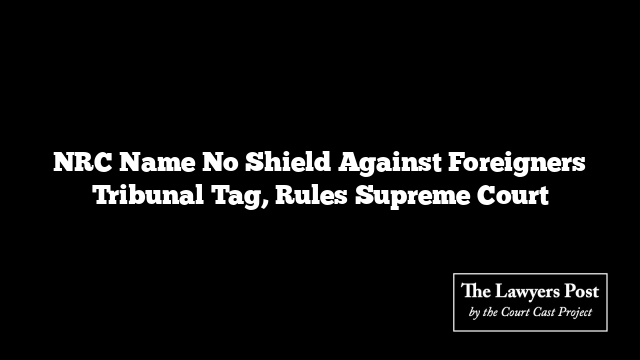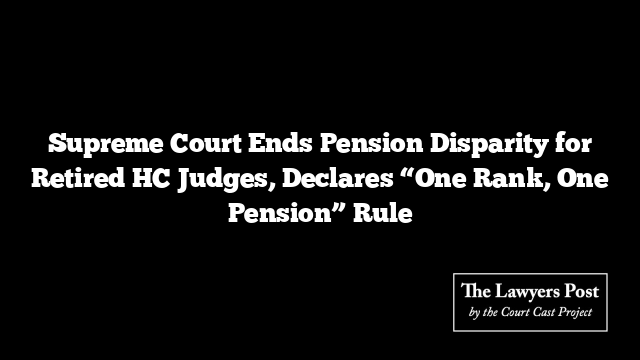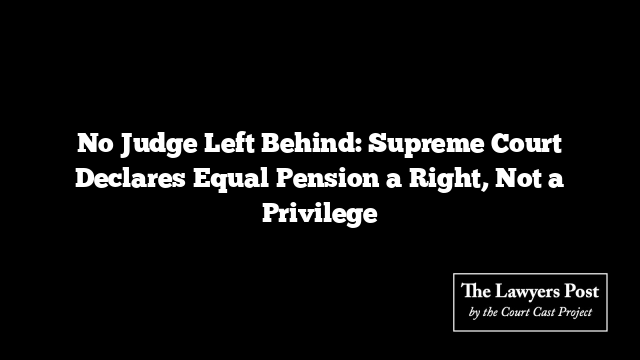In a decision that redraws the line between identity and legal status, the Supreme Court declared that being listed in Assam’s draft National Register of Citizens (NRC) cannot wipe clean a prior declaration of “foreigner” status by a Foreigners Tribunal.
A bench led by Justices Sanjay Karol and Manoj Misra upheld a Gauhati High Court order that refused to disturb a 2017 Tribunal decision branding the appellant a non-citizen—even though his name had made it into the 2018 draft NRC.
At the heart of the case was a crucial question: does an NRC entry override a Tribunal’s verdict issued before its publication? The Court gave a clear-cut answer—absolutely not.
Referencing its earlier ruling in Abdul Kuddus v. Union of India (2019), the Court reiterated that NRC inclusion has no legal force once a Foreigners Tribunal has made a determination. Inclusion, the Court emphasized, is not a badge of citizenship but merely a provisional administrative act.
The man at the center of the case had been declared a foreigner a full year before his name appeared in the draft NRC. Yet, that listing didn’t change his legal status one bit.
Adding to the clarity, the Court noted that the appellant failed to provide solid documentary evidence—no consistent voter lists, no reliable school records—to back his claim of Indian citizenship. Under Section 9 of the Foreigners Act, that burden falls squarely on the person asserting they belong.
“The Tribunal’s declaration stands untouched by the later NRC listing. In fact, that listing itself was erroneous,” the judgment stated, emphasizing that such names “could not have been included” in the first place.
With those words, the appeal was dismissed. The law, as it stands, gives more weight to a tribunal’s verdict than a name typed into a provisional register.





